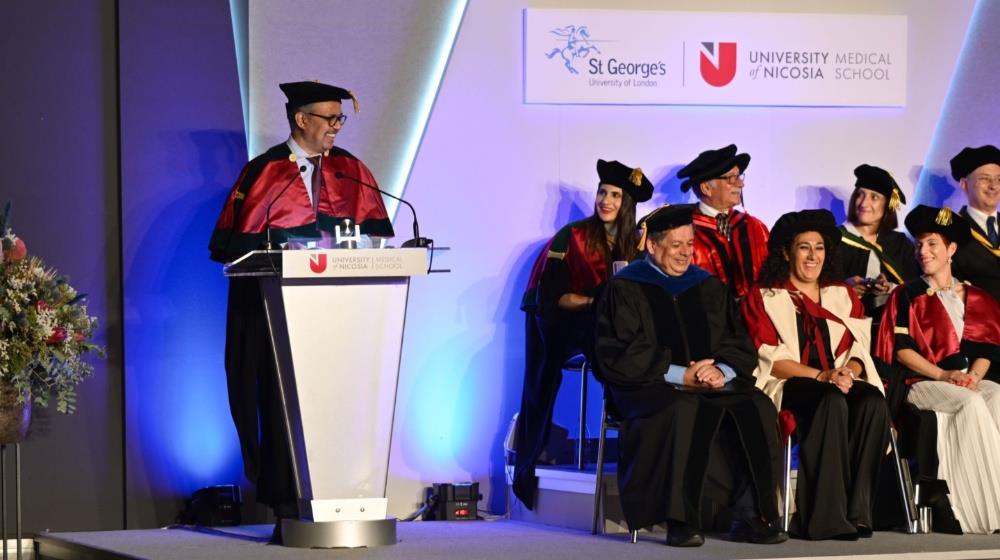Dr Tedros Adhanom Ghebreyesus, Director-General of the World Health Organization (WHO), conveyed his commitment that the WHO will support the Cypriot government in every possible way to promote, provide, and protect the health of the island’s people.
Dr Ghebreyesus visited Cyprus for the first time to attend the Graduation Ceremony of the Medical School of the University of Nicosia (UNIC), which took place on 27 June. During the graduation ceremony, Dr Tedros was awarded an honorary Doctor of Medicine degree.
This was the 10th graduation ceremony of the Medical School, attended by the Minister of Health, Michalis Damianou, Minister of Interior Constantinos Ioannou, the Vice Chancellor of St George’s, University of London, Professor Jenny Higham, ambassadors from various countries in Cyprus, and other distinguished guests, as well as hundreds of relatives and friends of the graduates who travelled to Cyprus from all continents to attend the ceremony.
In his speech, Dr Ghebreyesus stated: “As we are in every country, WHO is committed to supporting the Government of Cyprus in any way we can to promote, provide and protect the health of the people of this island.” He also reminded that Cyprus has been hosting the newest of the 153 WHO country offices since last year.
Addressing the Minister of Health and other political and official figures, Dr Ghebreyesus urged them to actively support the discussions towards an international agreement to tackle pandemics (Pandemic Treaty): “If negotiations are completed by next May at the latest, as agreed, it would still be a giant achievement in very short time.”
Dr Ghebreyesus then expressed his admiration for “the range of careers for which this school is producing graduates. From clinical practice to public health and research,” he noted. “The simple truth is that there is no health without health and care workers.”
He emphasised the irreplaceable role of healthcare workers despite the advancements in artificial intelligence and other technologies: “The COVID-19 pandemic showed us just how important they are,” he said.
Concluding, Dr Ghebreyesus said: “WHO was founded 76 years ago, in 1948, as the world emerged from the devastation of the Second World War. Like the United Nations of which we are a part, WHO was born of the recognition that the only alternative to global conflict was global cooperation. Our Constitution was the first instrument of international law to affirm that the highest attainable standard of health is a fundamental right for all people, without distinction. A fundamental human right. Not a privilege for some, or for most; it’s a right for all. That is the right for which WHO will continue to work.”









